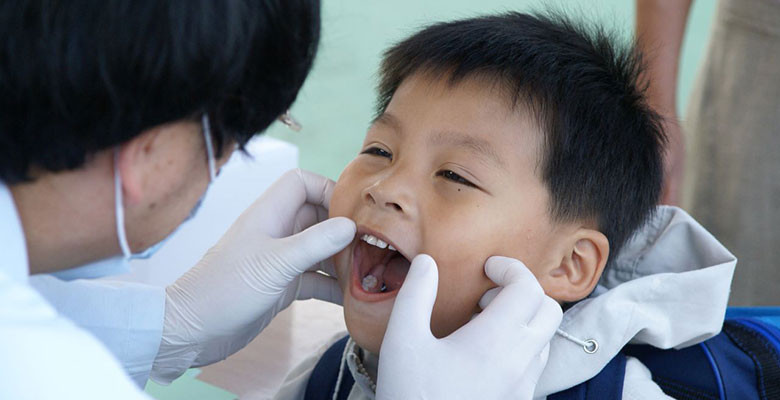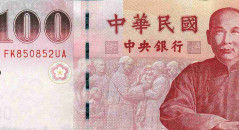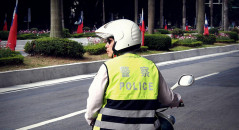
The national health service is comprehensive and cheap, and quality of care is generally good; dentistry is likewise reasonably priced and of a good standard
Medical insurance
Taiwan has excellent general health care. Created in 1995, the country’s health care system is considered to be one of the best in the world. Known as National Health Insurance (NHI), the Taiwanese system is single-payer compulsory social insurance that all working people, including foreign nationals, must participate in. The Taiwanese system is considered exemplary for its low cost, well-trained doctors, modern facilities and excellent services. Foreign residents who hold a valid Alien Resident Certificate (ARC) for more than four months are eligible to join the NHI program. Like Taiwanese, most foreigners contribute regular monthly premiums through their employer, who deducts a small amount from each pay packet. When foreign nationals acquire an ARC through channels other than employment, they can participate in NHI but are responsible for paying their own premium. Coverage includes medical and dental but does not cover all medical problems. Nonetheless, procedures not covered by NHI are very affordable by US standards. English speakers need not worry about going to any major hospital in Taiwan, as the majority of physicians speak good English as do a significant ratio of nurses. Unfortunately, the budget of NHI requires doctors to see a large number of patients, and foreigners are often frustrated by the wait times they find in Taiwanese hospitals.
It is easy to make an appointment with a doctor in Taiwan. Most major hospitals have websites where you can make an appointment online. This appointment will give you the doctor’s name, the time, the office number, and the appointment number that will tell you where you are in the sequence. Often the patient will make an appointment during a block of time (such as 1pm to 5pm) and will be given a number during that time. When you go to the hospital, most often you will go directly to the doctor’s office and will see a sign that indicates appointment number. After you see the doctor you will be given a pay slip that must be paid at the cashier’s desk before you can receive any medication or further tests. Most hospitals in Taiwan only take cash for fees. They do not accept cheques although more and more hospitals are accepting credit cards. Every person, foreign or national, in the NHI system has a Health IC smart card that contains medical data about each patient. When patients hand their cards to doctors, the doctors put the card into a card reader and see the patient’s medical history and prescriptions on their computer screens. The insurer is sent a bill for the visit and it is automatically paid.
Medicine prescribed by a doctor in Taiwan is covered by the NHI and is extraordinarily cheap by US standards. Medication is packaged with indications, major side effects, and precautions printed in Chinese, though the international clinics will also offer this information in English. Other medications can be bought over the counter in pharmacies, and even without the use of the NHI system, are very affordable by Western standards.
For more information, contact:
Bureau of National Health Insurance
No. 140, Sec. 3, Hsinyi Road,
Taipei 10634, Taiwan
886-2-2706-5866
To find the nearest healthcare service to your new home, check the Taiwanease directory healthcare category.
Medical Emergencies
It is important to be prepared in case of emergency, and there are several precautions you can take. The first step is to know where the nearest emergency room is from your residence and place of employment. Carry a card with the hospital’s address written in Chinese in case you must take a taxi to the hospital. In the case of a medical emergency, dial 119 for help. Remember to speak slowly and clearly in English if you cannot speak Chinese. The 119 service can dispatch an ambulance to your location as well as provide advice during an emergency. Remember to take your ID card and some cash to the hospital. Also, keep handy the telephone number of a Chinese-speaking friend who can translate if need be. Unfortunately, only a small number of ambulance units in Taiwan can provide paramedic (EMT) services. Most ambulance units can provide basic first aid such as stabilising minor bleeding, but usually it is faster to take a taxi to the nearest emergency room rather than wait for the ambulance.
Dentistry
Dental care is covered under the NHI system and is usually very good and very inexpensive. It’s important to note that I suggest a greater degree of scrutiny than with other forms of medical care when it comes to seeking dental treatment in Taiwan. Taiwan has some of the most advanced dental health facilities in the world. But even in major cities, substandard care and archaic facilities can still be found. I cannot emphasise enough that you should always go to the newest, most modern facilities that are available to you, especially since they will essentially cost the patient the same under the NHI system. As with medical coverage, not all dental work is covered under the NHI system, particularly those procedures considered merely cosmetic.
Dental school is 6-year undergraduate program in Taiwan. Dental school admissions are competitive in Taiwan and only students scoring in the top 3% on the entrance exam are admitted. Students complete 5 years of medical basic and dental professional courses at their own universities, followed by a year internship.
Traditional Chinese Medicine
Traditional Chinese medicine is still an important element in the health care culture of Taiwan. With its history that spans several millennia, Taiwanese feel that Chinese medicine has stood the test of time and is a vital part of maintaining good health. Consequently, many traditional Chinese medical treatments are subsidised by the NHI system, even though it represents a small percentage of the NHI budget. Soon after the ROC government established the Department of Health of the Ministry of the Interior to oversee health care in the country, the Committee on Chinese Medicine and Pharmacy was set up to advise the government on matters concerning the development of traditional Chinese medical practices and in 1995, the organisation became a permanent government agency.
Interest in Eastern medical practices such as herbal medicine, acupuncture, and massage therapy have seen a consistent rise in the West over the past couple of decades, and many Westerners, including physicians, have been convinced that Chinese medicine has quantifiable health benefits. Most major hospitals in Taiwan have a Chinese Medicine division that is divided by speciality, with smaller clinics usually specialising in one type of treatment or another. As most Chinese medical doctors work under the NHI program, they too have a large patient load that results in longer wait times and shorter visits. Foreigners living in Taiwan can explore Chinese medicine as a supplement to the Western health coverage they enjoy as residents. It is affordable and many find that it works. Taiwan is one of the most advanced countries in terms of integrating Western and Eastern medicine, so it is very easy for patients to ask their regular doctors about Chinese medical solutions to their health problems.
Taiwan, like most Asian countries, offers a wide range of full-body massage and foot massage services at parlours throughout the country. Westerners often assume that any establishment in Asia offering massage is actually a cover for a house of prostitution. Although these establishments do exist, the vast majority of massage parlours in Taiwan are legitimate places that provide professional services for about NT$1,000 an hour. Most massage services, however, are not provided under the NHI system.
Counselling and Mental Health
Many people find that a number of personal issues such as depression, anxiety, or family conflict can arise from the stress of relocating to a foreign country. Counselling services in Taiwan, as in Asia in general, are not as prevalent as they are in the West, but they are still available in most major cities. In Taipei, the Community Services Center offers professional counselling on an individual or family basis for a wide range of issues. The organisation’s staff provides services in English and Chinese, and each counsellor has an advanced degree and at least five years of clinical experience. Counselling sessions take place during a variety of hours, including evenings and weekends, and fees are based on the patient’s ability to pay.
There are a number of private practice mental health centres in Taiwan that also provide English language counselling services. Most major hospitals have mental health divisions that can also refer patients to outside counselling clinics. Also, some churches provide counselling services, which are listed in English language publications such as the Taipei Times.
Environmental Concerns
The two primary environmental concerns that can impact your health in Taiwan are pollution (of various kinds, but most often air pollution) and food hygiene. Emissions standards are not strictly enforced, and the huge number of vehicles on the road combined with a naturally humid climate means the air quality can be very poor at times. The Environmental Protection Agency website has an air quality monitor section, and will issue colour-coded warnings for areas with heavy pollution. On days in the red, look to minimise time spent outside.
With food safety, look for the cleanliness of a food outlet, and opt for restaurants that are busier, as the food is more likely to be served fresh. Taiwanese restaurant staff often have a poor understanding of allergies and religious food taboos, and informing them of your dietary restrictions may not actually result in the problem ingredient being excluded. If you have potentially fatal allergies, for example to nuts or seafood, it may be worth considering moving to another country rather than Taiwan, unless you are prepared to cook all your food yourself.
Recent food safety scandals have rocked confidence in a number of long-standing Taiwanese brands. In 2013 major suppliers of cooking oil were found to have been adulterating their “pure” olive and vegetable oils with cheaper substitutes, using coloring agents to mask the difference. In the same year, lab reports circulated reporting some milk brands sold as fresh were in fact a mix of fresh and powdered milk, while eggs sold as organic were in fact battery-farmed. Toxic levels of heavy metals in rice from the west coast are also a concern. As a consequence, many people who can afford it have taken to buying their ingredients from smaller outlets which have direct relationships with their suppliers.
Photo by DuReMi.



